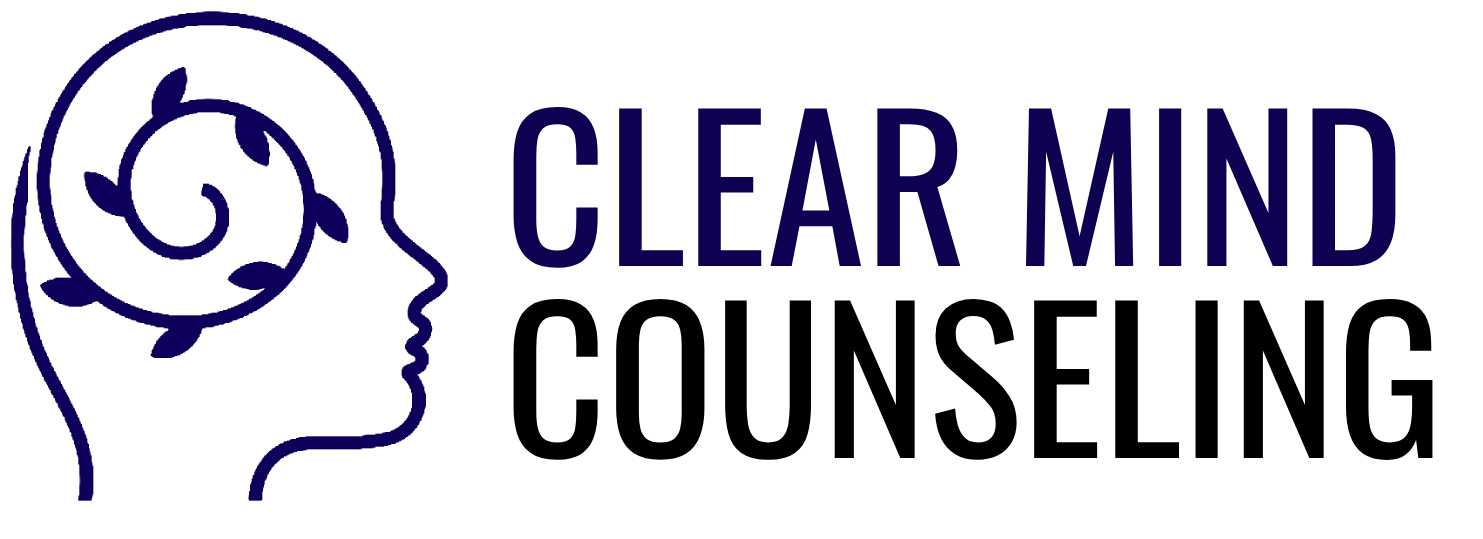Today’s blog post is an article by fellow therapist, Dr. Jamie Long. If you are feeling overwhelming panic and fear during the COVID-19 crisis you might be caught up in a cognitive distortion called Catastrophic Thinking. Read on to see how to identify and manage this destructive thought pattern
How to Cope with Catastrophic Thinking During the Coronavirus Pandemic
For many of us, concerns and worries have escalated tenfold over the past few weeks. I checked on a friend of mine, a new mom who just temporarily closed her business in response to the novel coronavirus. She’s someone who typically operates right at the edge of functional anxiety.
“How’s the anxiety?” I asked her.
“Ha! Anxiety?” she joked (sort of). “I’m petrified.”
“Ha! Anxiety?” she joked (sort of). “I’m petrified.”
My friend isn’t alone. Folks with or without pre-existing anxiety are experiencing a new wave of fears, worries, and downright doom. And the anxiety is valid. Worries and concerns about this pandemic are not irrational. But without containment, the fears can be endless. Here’s a list of some common ones I’ve been hearing recently.
Common Fears & Behaviors:
- Constantly thinking that you will contract COVID-19
- Worrying about family members contracting COVID-19
- Fear of getting sick at the peak of the outbreak and not having access to medical care or the hospital not having the necessary supplies
- Compulsive checking behaviors (taking temperature, googling)
- Fear of not being able to care for children or other family members
- Anticipating total financial ruin
- Worry that society could collapse as a whole
- Stockpiling supplies, money, food, etc.
- Fear of someone breaking into your home and stealing supplies, or inflicting harm
What is Catastrophizing?
Catastrophizing is a common cognitive distortion or thinking trap that predicts horrible outcomes and exaggerates the impact of a negative event.
The phrase ‘cognitive distortion’ is a psychological term that describes a pattern of faulty thinking. Distorted cognitions are the ways that our brain misbehaves. Think of it as the naughty little lies that inaccurately influence us how to feel about a situation. All of us are prone to cognitive distortions from time to time. Some brains do it a little, whereas others do it a lot.
During such a stressful and unprecedented time such as the coronavirus pandemic, most of us will be more vulnerable to irrational thoughts such as catastrophizing. The full public health and economic impact of COVID-19 in the United States remains relatively unknown. Our brains hate the experience of uncertainty and it’s both cognitively taxing and subjectively aversive. In a piece titled Why It’s So Hard to Think Effectively About the Future by Kamila Sip, Jay Dixit & David Rock, the authors describe a concept called ambiguity aversion. They write:
“Since the brain has evolved to err on the side of caution, its default setting is to treat anything novel, ambiguous, or uncertain as inherently aversive.”
Coping Skills for Catastrophizing
Cognitive Reappraisal Strategy
Emotional pain cannot always be avoided, however, emotional suffering can. The strategy of cognitive reappraisal helps decrease the emotional impact caused by our interpretations of a stressful situation (such as the coronavirus pandemic). The strategy involves asking yourself a series of questions that will likely result in the reduction or complete reframe of the catastrophic thoughts altogether. Pro Tip: Get out a pen and paper and actually write these questions and your answers down, rather than just doing them in your head.
- What is the threat I’m predicting?
- How certain am I that this prediction will come true? (0-100%)
- What facts am I considering to come to this conclusion?
- Does my prediction/conclusion actually fit the facts?
- Do I have a crystal ball? Or am I clairvoyant?
- What other possible (more positive) outcomes are there?
- If the horrible outcome actually happens, are there ways I can cope with it?
- Does worrying about this catastrophic outcome actually prepare me for it to happen?
- Does worrying about the catastrophe help me problem solve, prevent, or mitigate the likelihood of its occurrence?
After using the cognitive reappraisal strategy, did your level of certainty that the horrible outcome will occur decrease? If your answer is no, go through the questions again and/or ask someone to assist you.
Identify Core Beliefs That Fuel Catastrophizing
Various beliefs can influence the thoughts and emotions we experience about a situation. These beliefs are held as absolute truth and may be either conscious or subconscious.
The more vulnerable someone is to emotional distress, the more painful beliefs will be maintained despite any evidence to the contrary. For example, a person may view themselves very harshly due to a core belief that states they are inadequate, unlovable, worthless, etc. In turn, the core belief will cause the person to evaluate situations in a distorted manner, ultimately reinforcing the core belief. Learn more about addressing self-limiting core beliefs.
A technique called ‘downward arrow’ can help reveal information about your underlying assumptions and beliefs that might be fueling the distortion of catastrophizing. To do the downward arrow strategy, identify the first thought of the catastrophic sequence, then ask yourself the questions below. Keep going with the questions until you reach a belief that does not seem to change any further. Pro Tip: Again, get out pen and paper and actually write these questions and your answers down, rather than just doing them in your head.
Questions to ask yourself:
- What if that thought were true?
- If that were true, what would it mean?
- Say your thought is true, why should it bother you?
- What would be so bad about that?
- What would be the worst thing about that?
- What would be the worst thing that could happen?
- If that were true, what would it say about you?
- What would it say about your future?
- If that thought were true it would bother me because it would mean…
Example:
Thought: I don’t have enough supplies
Question: What if that were true?
Thought: I did a horrible job preparing
Question: If that were true, what would it mean?
Thought: My family will not have what they need
Question: If that were true, what would be so bad about that?
Thought: I will have let my family down and they may suffer
Question: Say your thought is true, why should it bother you?
Thought: I feel like a loser that I didn’t prepare or have enough supplies
Question: If that were true, what would it say about you (or about your future)?
Thought: That I’m a failure.
Thought: I don’t have enough supplies
Question: What if that were true?
Thought: I did a horrible job preparing
Question: If that were true, what would it mean?
Thought: My family will not have what they need
Question: If that were true, what would be so bad about that?
Thought: I will have let my family down and they may suffer
Question: Say your thought is true, why should it bother you?
Thought: I feel like a loser that I didn’t prepare or have enough supplies
Question: If that were true, what would it say about you (or about your future)?
Thought: That I’m a failure.
Relaxation Skills
In a heightened stress state, we experience increased emotional distress along with difficulty concentrating, memory impairment, poor impulse control, and lower ease to convey empathy. When our autonomic nervous system is calm, we are more easily able to self-soothe and think reasonably. Utilizing relaxation strategies can be a very effective way to lower the body’s physiological arousal, thus positively impacting our ability to challenge faulty thinking like catastrophizing.
Diaphragmatic Breathing
One of the most effective ways to activate the relaxation response is by decreasing the heart rate. Since we can’t voluntarily alter our pulse, more tangible measures are needed. Luckily, a rapid heart rate can be lowered with deep breathing techniques. The most commonly utilized strategy is breathing by contracting the diaphragm, a horizontal muscle in the chest located just above the stomach cavity. Click here to learn deep breathing techniques.
One of the most effective ways to activate the relaxation response is by decreasing the heart rate. Since we can’t voluntarily alter our pulse, more tangible measures are needed. Luckily, a rapid heart rate can be lowered with deep breathing techniques. The most commonly utilized strategy is breathing by contracting the diaphragm, a horizontal muscle in the chest located just above the stomach cavity. Click here to learn deep breathing techniques.
Muscle Relaxation
Stress causes our muscles to tighten and become tense. To increase a relaxed state and physical comfort, tighten and release muscles beginning with the largest muscle groups. Watch the video below to learn progressive muscle relaxation exercises.
Stress causes our muscles to tighten and become tense. To increase a relaxed state and physical comfort, tighten and release muscles beginning with the largest muscle groups. Watch the video below to learn progressive muscle relaxation exercises.
Stay informed, to a point. There’s no doubt that we’re inundated with an onslaught of information about the coronavirus from various news reports, social media, your own family, friends, and neighbors. I recommend the following sources for reliable information:
Keep things in perspective. Remind yourself that most people who contract COVID-19 will only experience mild symptoms for a few days. Death is unlikely for the average, healthy adult. As the virus spreads, note that this does not necessarily mean that it presents a life-threatening emergency to you or your family.
Avoid extreme behaviors. An intense situation doesn’t always warrant an intense response. Instead of buying copious amounts of supplies (taking them away from people who need them most), the best response is a collection of actions as mundane as washing your hands, covering your cough, not touching your face, social distancing, and following other CDC recommended best practices. Actions like panic buying (aka Loss Aversion) is a stockpiling behavior that is driven by the worry of missing out on something. Panic Buying gives a false sense of control and is fueled by the fear of the unknown, cognitive distortions, and pack mentality — pressure to conform to what everyone else is doing.
Instead of stockpiling, think in terms of win-win which means if others do well, you do well. So share the Purell and toilet paper. Remember that this situation is temporary. There isn’t a food shortage in our country and supply chains aren’t disrupted.
In Conclusion
Many of us are very concerned about the impact COVID-19 will have and is currently having on our lives and livelihood. Now is not the time to forego your mental health. Please practice healthy self-care strategies and reach out to a mental health specialist who is accepting new clients and can offer Telehealth (secure video chat) appointments.

Dr. Jamie Long is a Licensed Clinical Psychologist and Managing Partner of The Psychology Group Fort Lauderdale. She specializes in anxiety, depression, and eating disorders.
Copyright © 2020 The Psychology Group Fort Lau

